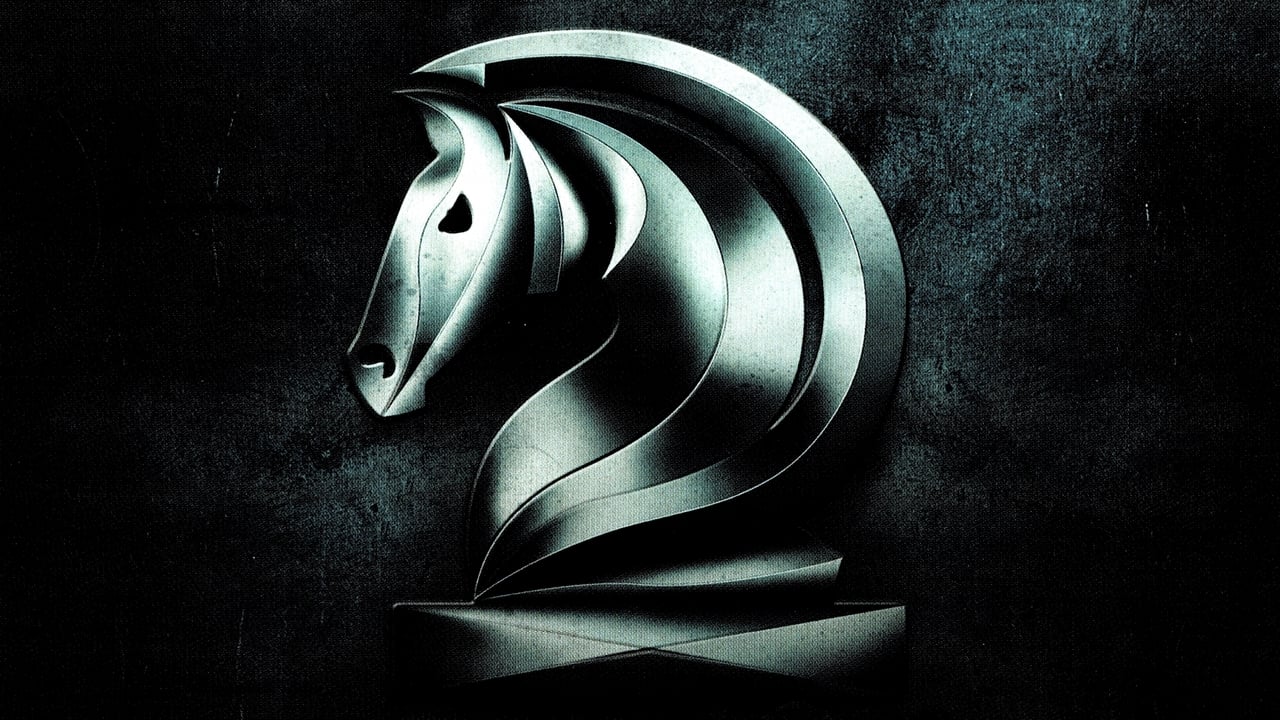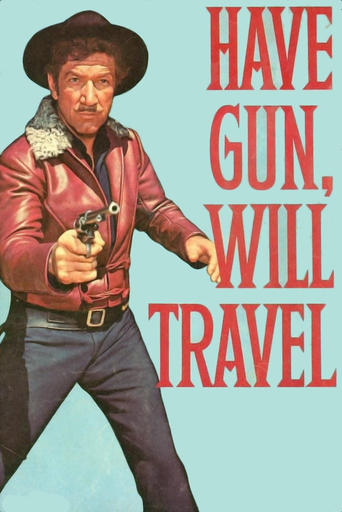SeeQuant
Blending excellent reporting and strong storytelling, this is a disturbing film truly stranger than fiction
Cody
One of the best movies of the year! Incredible from the beginning to the end.
Jerrie
It's a good bad... and worth a popcorn matinée. While it's easy to lament what could have been...
calvinnme
... but that wouldn't fit well on a business card, probably would not conjure up business, and most of all, would not have attracted viewers circa 1960 who were quite keen on Westerns at the time. Richard Boone seemed tailor made for the role of Paladin - a man seemingly with no first name, no family, and whose only anchor is the Hotel Carlton in San Francisco in which he lives when he is not out on a job. He is obviously well-educated, extremely good with a gun, and has a taste for the ladies but no lady in particular, even before Sean Connery as James Bond made that kind of thing acceptable. Paladin was such a good shot that he could have easily just been a mechanical assassin for hire had he so desired, but instead, you would be quite frustrated if you requested his services, told him to kill X, and then expected him to just go out and kill X in exchange for bags of money. Instead Paladin is a problem solver and a lover of justice, using his talent with a gun to defend himself and others only when necessary. As with some other Westerns of the late 50's and early 60's, the Western theme was used to tackle some of the thorny social issues of that turbulent time without coming out and saying so.Give this show a chance if you have the time. I think it has aged very well. Highly recommended.
John T. Ryan
COMING ON THE CBS Network following GUNSMOKE in the Saturday evening's lineup, HAVE GUN, WILL TRAVEL does present us with something just a little different in a TV Horse Opera. The central theme is that of what is basically a "Gun for Hire"; a theme usually not considered neither acceptable nor positive.THE WHOLE IDEA is effectively turned on its figurative head by the character of Paladin, or Mr. Paladin as "Hey Boy" called him. Instead of grubby, grizzled saddle tramps with no moral compass, he is characterized as a gentleman, former Army Officer, who lives in relative luxury in a posh (for the 1870s) San Francisco hotel.IT IS AT this older version of the Waldorf and being decked out in white, suit or formal wear that Paladin would participate in the obligatory episode opener. When reading a letter about his next proposed job, he would inevitably turn over a copy of his business card, adorned with the now famous Horsehead Knight Chessman symbol. This was accompanied with the musical cue of "duh-duh-duh-duh!" ONCE THIS WAS accomplished, the audience knew that "the Game was afoot!" THE NEXT SCENE, being the first after a commercial break, usually had Paladin arriving in whatever town on horseback. Now clad in his all black outfit, both the viewing audience and the townspeople of "Wherever, USA" immediately knew that he meant business. In order that there would be no doubt of his identity, his hat had a Horsehead Knight Chessman emblem for all to see.ONE ELEMENT OF this series was it was a sort of hybrid. It was a continuing character Western, yet it had its roots in the old Anthology Series concept. Others had also done this, like Steve McQueen in WANTED DEAD OR ALIVE; but non to the extent that this Paladin show did.ONE OTHER PECULIARITY that it appears to have had a monopoly on was that there was also a HAVE GUN WILL TRAVEL Radio Show. That alone is nothing unusual. But here is where it diverges from the norm; as the TV Show came first and the Radio show came later on the CBS Radio Network. It featured John Dehner as Paladin.
martin-fennell
Hi. I listened to two episodes of the radio version this morning. They were heyboy's revenge, and Winchester quarantine. In the former, we learn heyboy's real name. Although I wonder why he couldn't have been called by his real name. I'm guessing calling the character Heyboy would be seen as pretty un pc these days. I did notice that in the radio version he was played by a white actor (ben wright) who was English and had a talent for accents and in the TV version by an Asian actor Kam Tong. In Bonanza they had an Asian actor playing hop sing (Victor Sen Yung) whereas in movies (correct me if I'm wrong here) white actors were still playing orientals, Indians etc. Does this mean that TV was more progressive in it's outlook than radio or movies? I have done very little research, so am prepared to be shot down for that comment. In the second episode Paladin helps out an Indian who has been educated in the ways of the white man. The character and his wife are treated with dignity. When i think of John Dehner, and Richard Boone, I think of them primarily as villainous characters; Dehner in TV series and Boone in movies. so it's interesting to me at least, that their most famous roles was as good guys. Dehner did mention in The story of Gunsmoke, that he much preferred his time on Gunsmoke than he did on HGWT. Oh, by the way, I used to think the character's name was Will Travel :) M
tim-1979
In 1974, a Portuguese(!) cowboy from Rhode Island(!) named Victor De Costa won a federal court judgment in his second suit against CBS for trademark infringement, successfully litigating his assertion that he had created the Paladin character and the ideas used in the show -- which were somehow stolen by HGWT's producers. (Rather dubious since HGWT's original concept was that of a modern day globe-trotting detective.) He claimed he began billing himself as Paladin after an Italian man stood up at a horse show and called him a "paladino." He claimed he'd adopted the phrase "Have Gun, Will Travel" after someone shouted it at him while he was on a bucking bronco. At his appearances he always dressed in black, he handed out hundreds of HGWT business cards, and he even carried a concealed derringer. The physical resemblance between Mr. De Costa and Richard Boone was nothing less than striking.Although monetary damages were not immediately awarded, De Costa stood to gain a tidy sum, as court testimony indicated that HGWT had made more than $14 million for CBS (a titanic amount in the 1950's-60's), plus millions more in product licensing. A year later, a court of appeals overturned the lower court, ruling that the plaintiff had failed to prove that the public had been deceived -- i.e., there had been no likelihood of confusion in the minds of the public -- a necessary requirement for a suit over trademark infringement. However, De Costa kept pursuing his legal options, and in 1991 -- more than 30 years after his first lawsuit was originally filed -- he was awarded over 3 million dollars after quietly trademarking the Paladin character and business card in the late 70's. Unfortunately, Mr. De Costa passed away at the age of 83 before he could receive a single penny.(hgwt.com)

